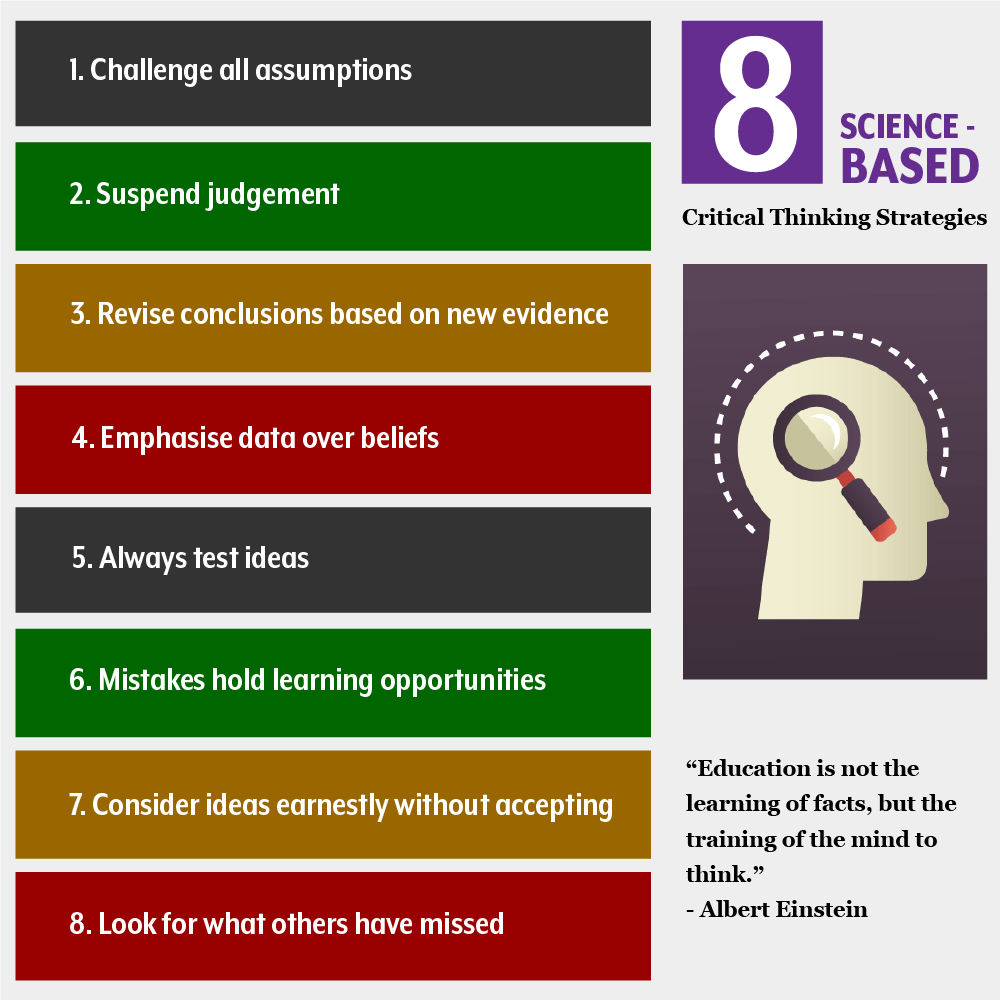Science education is a core part of the school curriculum. Science instruction is also one of the oldest pillars of academia, holding a special place among the disciplines as a vital area of learning.
For several compelling reasons, science education should continue to be supported in schools and not marginalised by trendy topics that crowd the curriculum. Science and technology are driving forces in a world where artificial intelligence and mobile gadgets are becoming increasingly dominant.
Here are six enduring benefits of science education in schools.
1. Science Enhances Critical Thinking

Scientific concepts typically begin with an idea, followed by an experiment to substantiate that idea through technical methods and analysis. The scientific method dictates a logical way of approaching unfamiliar topics, ensuring that students can learn how to relate theoretical and practical work.
Learning to establish the relationship between theories and empirical evidence holds cognitive benefits that extend to other subjects and areas of life. Like gas to a stove, science fuels young minds, accelerating them into peak performance.
On the flip side, deficiencies in critical thinking in many parts of the community can be attributed to a lack of accumulated practice that comes with time spent on science studies.
2. Science Knowledge Cultivates a Passion for Learning

The thrill of uncovering why the sun sets in the east, why the sky is blue, how fish breath in water and other remarkable everyday scenarios is naturally fascinating. Science feeds the natural curiosity that makes learners tick and encourages them to explore the mysteries observable everywhere.
A hands-on approach also appeals to many. The possibility of demonstrating scientific concepts first-hand builds an appetite for learning.
3. Science Uplifts Many Disciplines

For one to understand science, you need a solid understanding of other essential areas of study. For instance:
- Knowledge of mathematical concepts is a fundamental prerequisite that comes in handy for qualitative and quantitative analysis.
- Scientific method is based on technical skills, such as the careful observation of the world around us and the ability to conduct highly controlled experiments.
- The presentation of results in science reporting teaches the values of objectivity and thoroughness.
Getting good at science positions a student to do well in life. They can quickly turn their hand to other fields of study or work using core science-related competencies.
4. Innovation and Problem-Solving Skills

Science education fosters a mindset of innovation and nurtures problem-solving skills. Through scientific inquiry and experimentation, students learn to think critically, analyse data, and develop creative solutions to complex problems. The ability to approach challenges with an open and curious mind is essential for tackling real-world issues and driving human advancement.
By encouraging students to explore and question the world around them, they learn to think outside the box and develop new ideas. These skills are highly valued in today’s rapidly evolving society, where innovation and an entrepreneurial spirit are key to addressing global challenges.
5. Career Opportunities Flow from Science Skills

Ultimately, one of the primary reasons children to go to school is to get a job and a good one at that. Through the enhancement of logic and math-based skills, children with a science background have an enormous opportunities before them.
Opportunities from learning science encompass professions both within scientific fields and outside of science, extending to fields such as business, engineering, information technology and healthcare.
Science is continuously on an upward, expansionary trend. The economy may or may not take a hit in the future, but you can never say the same about science.
Our understanding of the world through science consistently takes steps forward and rarely back. With scientific solutions and innovations surfacing at an accelerating rate, science never loses its daily relevance.
6. Science Holds the Key to the Future

It’s hard to think of an aspect of life that doesn’t lean on science to some extent. It’s an integral part of various fields, from agriculture to high-tech and everything in between. The next generation deserve a strong science education to help prepare them for whatever may lie ahead.
For example, declining rates of smoking take-up appear due, in part, to science-based intervention programs in schools. Science is useful for demonstrating to students the environmental and medical effects of pollutants, including tobacco smoke, and the risks of substance addiction. Interactive learning has been the most statistically convincing teaching method in terms of producing observable long-term benefits.
In a world where new scientific advancements crop up seemingly by the hour, a background in science ensures students aren’t left behind by the ever-shifting tides of the technological wave. A strong science foundation teaches learners to be self-sufficient in an environment where constant change is the only constant.


Jamal
Science in schools is our best shot at future-proofing our kids. Let’s not dilute their education with passing trends. I was never more engaged at school than when I was learning how the world actually works.
Harry Benderson
Science is an ideal study because it does enhance your knowledge of other disciplines. I think that’s why science is such an important element of STEM. Indeed, I think it’s the most important element of it as it can be applied to any course of study. I wish I’d studied science more when I was younger because I’ve had to self-educate myself about it to keep informed about our world.
Mason Paulson
You’d have to be daft to think science should be phased out. With more people being anti-science, it’s vital that we teach our kids about the scientific method, critical thinking, and how we comprehend how things in the natural world operate thanks to scientific observation.
Harry Benderson
Great lessons here. I love the presentation too. You combine some great graphics along with a persuasive set of reasons why science education is so important. Science is certainly a discipline that reinforces other areas of learning and I regret not taking a science minor in my undergraduate studies.
Carter
I dreaded anything that had to do with science, I was attracted to English study and Social Sciences only to make a u-turn and opt for a career in Chemical engineering. Now I can’t imagine my life without science.